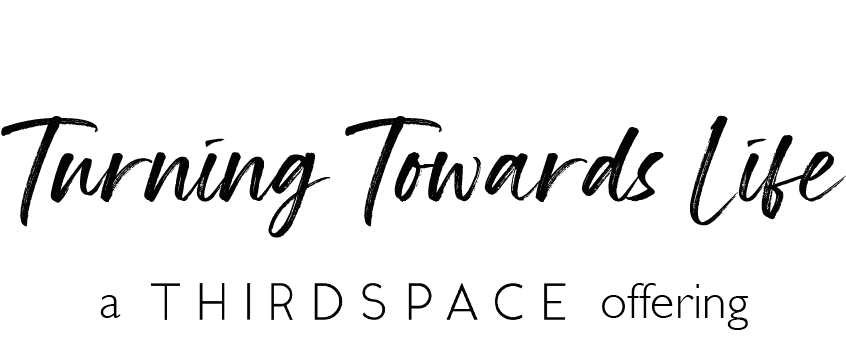Understanding, Not Convincing, Episode 268
Being able to live with multiplicity - the ability to accept multiple realities at once - is critical to healthy relationships, and it's critical to our own flourishing too.
Because once we see that there are many parts within us - that there we are each a kind of unfolding process of inner community - we can come to see that when two or more people are together there are already many parallel interpretations, narratives, and sets of intentions wanting to be known.
When we want to build community, trust, safety and connection between us - all conditions we long for and deeply need - the primary work is to cultivate our understanding of these many perspectives rather than trying to control things by having our way or making others (including the others inside us) abandon themselves in order to fit in.
This week's Turning Towards Life is hosted as always by Lizzie Winn and Justin Wise of Thirdspace.
Here's our source for this week:
Understanding, Not Convincing
This idea of multiplicity - the ability to accept multiple realities at once - is critical to healthy relationships. When there are two people in a room, there are also two sets of feelings, thoughts, needs and perspectives. Our ability to hold on to multiple truths at once - ours and someone else’s - allows two people in a relationship to feel seen and feel real, even if they are in conflict. Multiplicity is what allows two people to get along and feel close - they each know that their experience will be accepted as true and explored as important, even if those experiences are different. Building strong connections relies on the assumption that no one is right in the absolute, because understanding, not convincing is what makes people feel secure in a relationship.
What do I mean by understanding and not convincing ? Well, when we seek to understand, we attempt to see and learn more about another person’s perspective, feelings and experience. We essentially say to the person ”I am having one experience and you are having a different experience. I want to get to know what’s happening for you”. It doesn’t mean you agree or comply (these would imply a “one thing is true” perspective), or that we are wrong or our truth doesn’t hold: it means we are willing to put our own experience aside for a moment to get to know someone else’s. When we approach someone with the goal of understanding, we accept that there isn’t one correct interpretation of a set of facts, but rather multiple experiences and viewpoints. Understanding has one goal: connection. And because connecting to our kids is how they learn to regulate their emotions and feel good inside, understanding will come up over and over again as a goal of communication.
Dr Becky Kennedy
From Good Inside - A practical guide to becoming the parent you want to be.
Photo by S&B Vonlanthen on Unsplash

